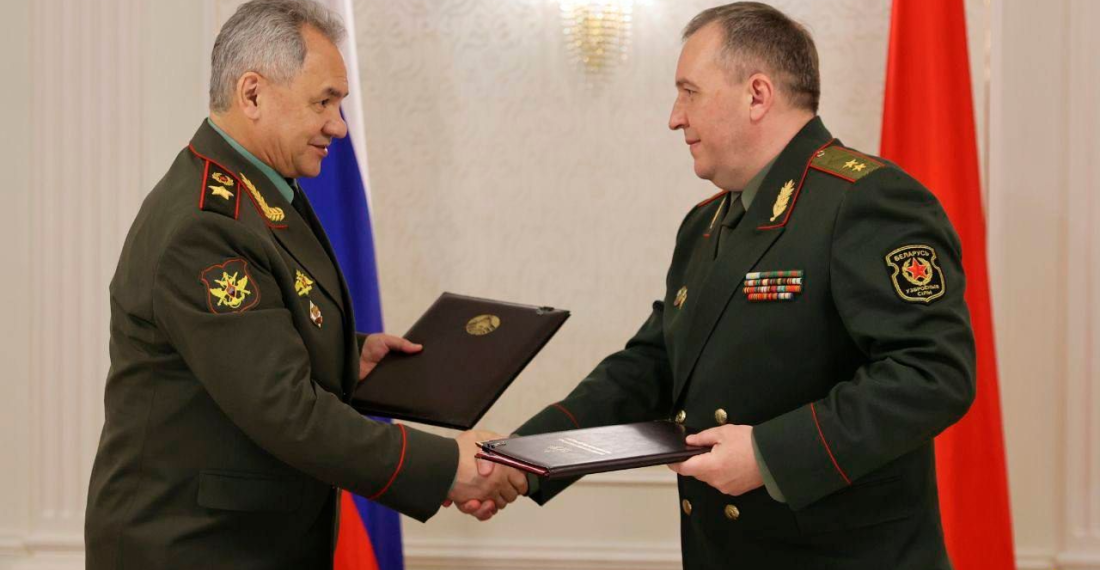Yesterday on Thursday (25 May), the Russian and Belarusian defence ministers Sergei Shoigu and Viktor Khrenin signed documents on placing Russian non-strategic nuclear weapons in Belarus.
According to the Russian state-controlled news agency Interfax, Shoigu said at the meeting that decisions over the control and use of the nuclear weapons stationed in Belarus would remain under the control of Russia.
Shoigu added that Russia may take "additional measures" in the future "to ensure the security of the Union State [of Russia and Belarus] and respond to the military-political situation".
Russian President Vladimir Putin, and especially TV propagandists, have consistently threatened the West with nuclear weapons as Russia's full-scale invasion of Ukraine launched on 24 February last year has foundered. On 25 March this year, President Putin threatened to place tactical nuclear weapons in Belarus "for training", although Belarus has worked towards this development for some time.
In November 2021, Belarusian President Aleksandr Lukashenka offered Putin the opportunity to "return nuclear weapons to Belarus", and in February 2022 Lukashenka conducted a dubious referendum on constitutional changes, which included removing language on the country's nuclear-free status.
The United States have said that they will continue to monitor the situation.
Use of nuclear weapons in Ukraine or elsewhere "extraordinarily unlikely", according to ISW
In their daily assessment of the Russian offensive campaign against Ukraine, the Washington DC-based Institute for the Study of War (ISW) said that the chance of Russia using the nuclear weapons in Ukraine or elsewhere is "extraordinarily unlikely".
"Russia has long fielded nuclear weapons that are able to strike any target that tactical nuclear weapons launched from Belarus could also hit," the ISW added.
Instead, they posit that because the deployment of nuclear weapons requires "both significant military infrastructure and Russian command and control over elements of the Belarusian Armed Forces, [Moscow] likely intends to use these requirements to further subordinate the Belarusian security sphere under Russia".
Although the deployment of the nuclear weapons is yet to be realised, their possible deployment is highly unlikely to presage any Russian escalation, says the ISW.
source: commonspace.eu with agencies
photo: Belarus' Defense Ministry






